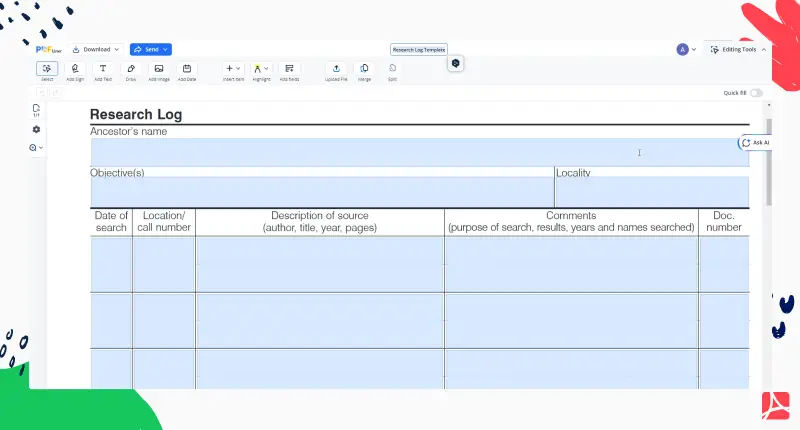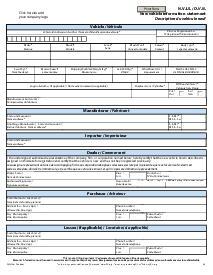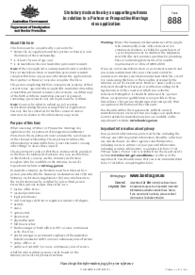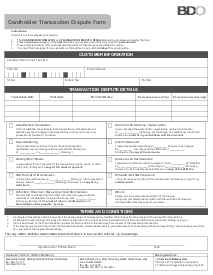-
Templates
1099 FormsAccurately report 1099 information returns and ensure IRS filing with easeExplore all templatesW-9 W-8 FormsEasily manage and share taxpayer details to streamline payments and meet IRS requirements with confidenceExplore all templatesOther Tax FormsFillable tax forms simplify and speed up your tax filing process and aid with recordkeeping.Explore all templatesReal EstateReal estate templates for all cases, from sale to rentals, save you a lot of time and effort.Explore all templatesLogisticsSimplify your trucking and logistics paperwork with our ready-to-use transportation and freight templates.Explore all templatesMedicalMedical forms help you keep patient documentation organized and secure.Explore all templatesBill of SaleBill of Sale templates streamline the transfer of ownership with clarity and protection.Explore all templatesContractsVarious contract templates ensure efficient and clear legal transactions.Explore all templatesEducationEducational forms and templates enhance the learning experience and student management.Explore all templates
-
Features
FeaturesAI-Enhanced Document Solutions for Contractor-Client Success and IRS ComplianceExplore all featuresAI Summarizer Check out the featureAI PDF summarizer makes your document workflow even faster. Ask AI to summarize PDF, assist you with tax forms, complete assignments, and more using just one tool.Sign PDF Check out the featurePDFLiner gives the opportunity to sign documents online, save them, send at once by email or print. Register now, upload your document and e-sign it onlineFill Out PDF Check out the featurePDFLiner provides different tools for filling in PDF forms. All you need is to register, upload the necessary document and start filling it out.Draw on a PDF Check out the featureDraw lines, circles, and other drawings on PDF using tools of PDFLiner online. Streamline your document editing process, speeding up your productivity
- Solutions
- Features
- Blog
- Support
- Pricing
- Log in
- Sign Up
Research Log Template
Get your Research Log Template in 3 easy steps
-
01 Fill and edit template
-
02 Sign it online
-
03 Export or print immediately
What is a Research Log Template?
A research log template is an extremely helpful tool in managing research tasks. This document keeps track of everything related to your research - from sources and time spent, to findings and the methodologies used. It's essentially a handy organizer that helps researchers to sort, track, and easily remember specific research details.
Importance of a research log template
A research log template stands as an indispensable tool in any form of systematic investigation. It significantly enhances efficiency by allowing researchers to track and manage all aspects of their research systematically. The advantages of employing a research log template include:
- Time-saving: Unlike running searches each time you require an information, a research log template provides a centralized location where you can easily retrieve such data.
- Prevents duplication of effort: By keeping track of your research sources and activities, researchers avoid retracing previously taken steps thus preventing wastage of resources and time.
- Enhances organization: A research log template separates each aspect of your research granting you a more uncluttered and streamlined access to your information.
- Comprehensive record-keeping: Cut across all areas of your research, providing a thorough documentation of your research progress.
For top-notch quality and easy-to-use research log templates, PDFLiner remains the go-to for many seasoned researchers. Its meticulously designed research log template form guarantees a seamless and remarkable research process.
How to Fill Out Research Log Template
Here's a detailed guide on how to complete the research log template:
- Enter the name of the ancestor you are researching in the 'Ancestor’s name' field. This helps in identifying the focus of the research log.
- Specify the purpose of your research in the 'Objective(s)' section. Include what you aim to discover or verify about your ancestor, such as birth records or specific event details.
- Input the geographical area your research focuses on in the 'Locality' field. This could be a town, city, or a more specific location like a parish or county.
- Be sure to jot down any important details about your search in the 'Comments' section. This could include the reasons behind your search, what results you found, as well as the years and names you explored. Think of this space as a storybook for your research journey, helping you keep track of your progress and findings.
- Provide a detailed citation of the sources you consulted in the 'Description of source' field. Include the author, title, year of publication, and pages used. This is crucial for verifying research and revisiting sources.
- Enter the document number in the 'Doc. number' field if applicable. This could be an archive reference number or a personal filing reference.
- Specify where the source can be found in the 'Location/call number' field. This might be an actual physical location or a digital source reference number.
- Record the date of your search in the 'Date of search' field. This helps in organizing records chronologically and may be useful for future reference.
Fillable online Research Log Template




































































